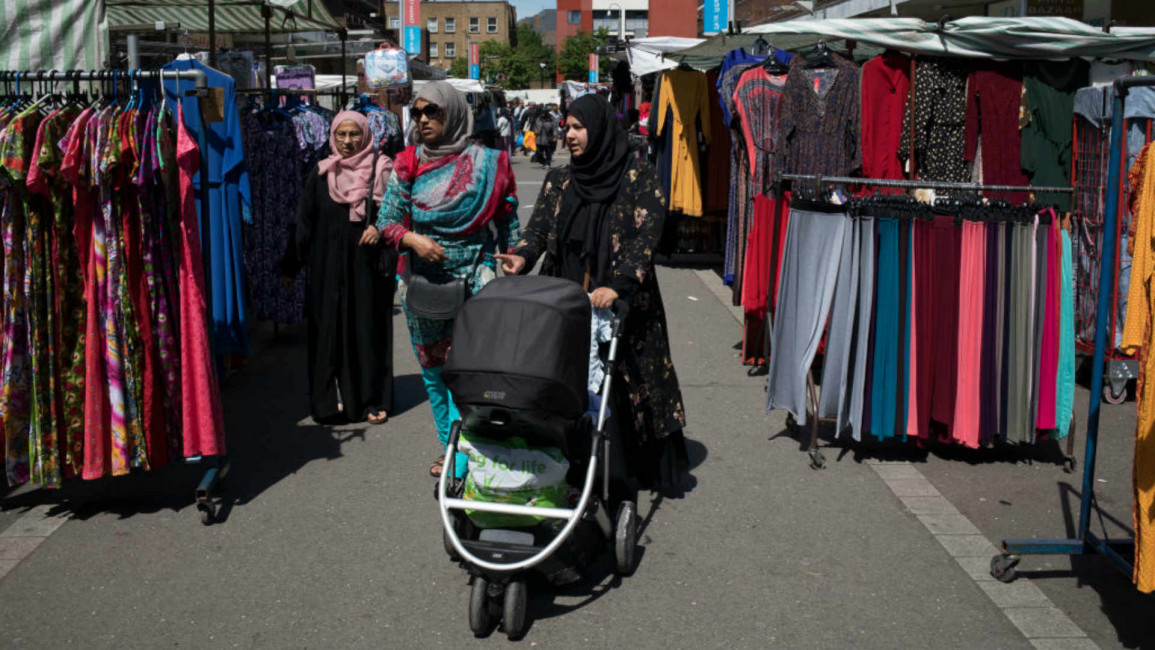
No, London has not fallen to Islam
"When I was visiting the UK as a teenager in 2006, I got lost in an East London market. There, I saw a group of women wearing head-to-toe black cloaks. I froze, confused and intimidated by the faceless figures. It was my first encounter with the niqab, which covers everything but a woman's eyes."
So begins one of the most ridiculous pieces of journalism to be published in a serious newspaper last week.
The author, Andy Ngo proceeds to describe his return to the British capital this summer, and trips over one stereotype after another, making sweeping generalisations about East London's substantial Muslim communities. The article makes not so subtle references to 'grooming', as well as the supposed Arabisation of South Asians, religiously conservative dress forms and the alleged absence of Union Jack flags in Muslim businesses.
"Fearful and confused", he seems to have stumbled into a B-rated, post-apocalyptic movie where Muslims have recreated Saudi Arabia in London's Tower Hamlets.
Online reactions
Twitter was quick to mock Ngo's amateur anthropology. But the author's racist voyeurism mirrors the antics of one of the UK's worst Islamophobes - Katie Hopkins - who recently discovered that Edgware Road had high density of people of Arab heritage.
Twitter Post
|
This genre of reportage falls squarely within the right-wing nightmare narratives, fearful of 'Eurabia,' 'Declinism' and other dystopic future scenarios apparently casued by rapidly increasing Muslim population in Europe.
Such notions have been popularised in recent best sellers, such as Douglas Murray's 'The Strange Death of Europe: Immigration, Identity, Islam', Eric Zemmour's 'The French Suicide' and 'Hostile Takeover: How Islam Obstructs Progress and Threatens Society', by Thilo Sarrazin.
While this growing body of polemics carries a veneer of intellectual sophistication, Ngo's article is more akin to a flyer produced by racist fringe organisations the English Defense League, or Britain First.
Londonistan and 'Sharia creep'
This is not the first time an American writer has spectacularly misrepresented the ethno-religious demographics of a major British city. Pseudo Islam expert Steve Emerson was ridiculed for describing Birmingham as a Muslim city "where non-Muslims just simply don't go in".
For Ngo, London is in danger of losing its English identity; fracturing into ethno-religious enclaves where a form of Shariah law is practised:
"As I walked down Whitechapel Road, the adhan, or call to prayer, echoed through the neighbourhood. Muslims walked in one direction for jumu'ah, Friday prayer, while non-Muslims went the opposite way. Each group kept its distance and avoided eye contact with the other. A sign was posted on a pole: 'Alcohol restricted zone.'"
But this sign - Ngo should know - is hardly an indication of an Islamic takeover, and more a manifestation of local government regulations.
The overall number of Muslims living in London is around 12.5 percent of the total population. A spokesperson for Tower Hamlets local authority also pointed out "If the writer had bothered to do any research he would have found that no drinking zones have been introduced by many councils across the UK to tackle antisocial behaviour linked to street drinking," - a fact which forced a correction to his original article.
London, like all big cities has its share of difficult challenges. For people curious about the ethno-religious diversity of its residents - there's no shortage of informative written commentary. Riz Khan's new BBC mini-series 'Englistan' also gives an insight into how diaspora communities experience living in a multicultural megacity.
An alt-right supporter in tourist's clothing
What makes Ngo's piece all the more troubling, is that he is a member of an ethnic minority himself and lives in the so-called melting pot that is the United States of America.
He's no stranger to controversy and is a sub-editor at Quillette, a publication which claims to "provide a 'safe space' for people, academics or otherwise", wrapping up alt-right talking points in erudite language, and publishing pieces such as, 'Is it wrong to blame Islam?' Ngo finishes his article claiming that:
Twitter Post
|
"Other tourists might remember London for Buckingham Palace, Piccadilly Circus and Big Ben. I'll remember it for its failed multiculturalism. Or perhaps this is what successful multiculturalism looks like."
Wandering the streets of East London isn't the most rigorous way of exposing the supposed failures of multiculturalism. It's unclear whether Andy Ngo is a fantasist, or just an unscrupulous journalist looking for a mainstream platform to share his alt-right politics.
The reality is, such articles feed into the false and frankly offensive narrative of a stealthy 'Islamisation of the West'.
They demonise British Muslim communities by casting them as the 'enemy within', placing collective blame on them for the crimes committed by the few. Fear, discrimination, anti-Muslim hate crime and increased support for the far-right are the destructive products, and must be called out where they exist.
Dr Sadek Hamid is an academic who has written widely about British Muslims. He is the author of 'Sufis, Salafis and Islamists: The Contested Ground of British Islamic Activism' and is co-author of 'British Muslims: New Directions in Islamic Thought, Creativity and Activism'.
Follow him on Twitter: @sadekhamid
Opinions expressed in this article remain those of the author, and do not necessarily represent those of The New Arab, its editorial board or staff.




